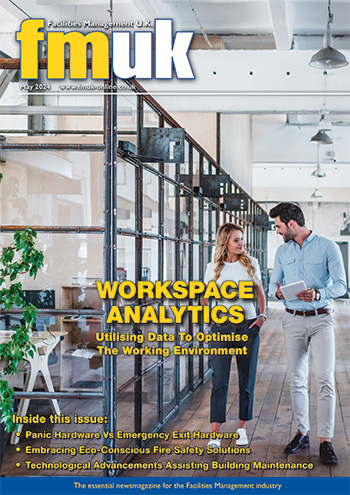Measuring Performance Is The Most Effective Way
To Get Us To Net Zero
 “Reaching net zero by 2050 is a legal requirement, but FM’s need to go beyond business as usual if we are to accelerate decarbonisation and reduce global warming.”
“Reaching net zero by 2050 is a legal requirement, but FM’s need to go beyond business as usual if we are to accelerate decarbonisation and reduce global warming.”
Nathan Goode, chief strategy officer, Social Value Portal, explains the link between social value and environmental impact and illustrates some simple things we can all do to reduce environmental impact.
We have seen the rapid acceleration of the climate emergency first hand this Summer, with flooding in Australia, intense heat waves in India, droughts in Italy and the UK hitting its highest ever recorded temperature of 40C. With incidents like this happening in the space of just a few months, we need to prioritise decarbonisation and focus on reaching net zero immediately.
The UK Green Building Council (UKGBC) reports that the built environment is currently responsible for 25% of the UK’s total greenhouse gas emissions, so facilities managers understandably have a really important part to play in achieving net zero.
Without doubt, social value and reducing environmental impact go hand in hand but this isn’t always widely understood. There can also be the assumption that measuring and reporting on environmental performance as part of a standard social value strategy is enough, but more can - and must, be done.
It is essential that we put tackling the climate emergency into a social context (or vice versa). Trying to move to net zero without addressing climate injustice and inequality simply isn’t going to work.
Climate change is felt differently by different groups, with lower income and disadvantaged groups (i.e. those who are out of work, suffering from critical illness or experiencing fuel poverty), more likely to be affected, despite contributing the least to causes of climate change. This is where social value comes in.
The role of FM’s has advanced significantly since the days of simply being good at rent collection and monitoring building performance. It is now generally acknowledged that engaging with the local community to spearhead improvements leads to occupiers also flourishing, which in turn leads to a better performing asset. This gives FM’s a unique opportunity to support disadvantaged groups on the road to net zero.
Another key area where facilities managers can make a significant difference is through staff engagement. The FM sector employs large numbers of staff and how they look after them, upskill them, help them lower their individual carbon footprint and adapt to net zero will also enable us to make significant strides in the right direction.
Everyone can do something and from that base, the shared mission that creates collaboration and consensus will start to take shape and the shift towards net zero will become more obvious.
There are additional benefits for an organisation that tackles net zero head on; inspiring others, improving reputation, recruiting and retaining the best talent and ensuring your organisation is above accusations of greenwashing.
The Importance Of Measuring, Evaluating And Reporting
Over the last few months, I’ve been leading a working group for the National Social Value Taskforce to understand how the social value movement can engage more meaningfully in the fight against climate change. This has led to the widely used measurement framework, the National TOMs, being significantly updated to address environmental challenges, enabling organisations to reach a good level of transparency when talking about their environmental performance.
There is still work to be done to understand the societal consequences of the move to net zero but measurement, evaluation and reporting are the only way we will truly get there. Understanding what actions have the most positive impact and, crucially, what more we can do together is the only real - and expedient - way forward.


























































